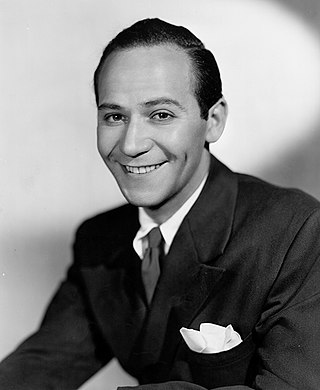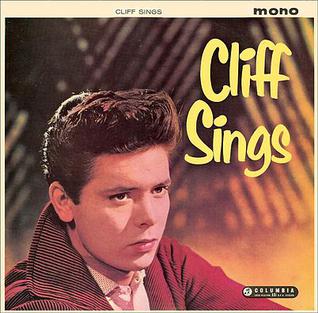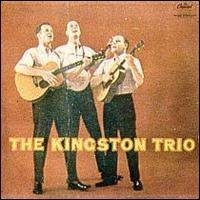
Frank Henry Loesser was an American songwriter who wrote the music and lyrics for the Broadway musicals Guys and Dolls and How to Succeed in Business Without Really Trying, among others. He won a Tony Award for Guys and Dolls and shared the Pulitzer Prize for Drama for How to Succeed. He also wrote songs for over 60 Hollywood films and Tin Pan Alley, many of which have become standards, and was nominated for five Academy Awards for best song, winning once for "Baby, It's Cold Outside".

The Modern Jazz Quartet (MJQ) was a jazz combo established in 1952 that played music influenced by classical, cool jazz, blues and bebop. For most of its history the Quartet consisted of John Lewis (piano), Milt Jackson (vibraphone), Percy Heath, and Connie Kay (drums). The group grew out of the rhythm section of Dizzy Gillespie's big band from 1946 to 1948, which consisted of Lewis and Jackson along with bassist Ray Brown and drummer Kenny Clarke. They recorded as the Milt Jackson Quartet in 1951 and Brown left the group, being replaced on bass by Heath. During the early-to-mid-1950s they became the Modern Jazz Quartet, Lewis became the group's musical director, and they made several recordings with Prestige Records, including the original versions of their two best-known compositions, Lewis's "Django" and Jackson's "Bags' Groove". Clarke left the group in 1955 and was replaced as drummer by Connie Kay, and in 1956 they moved to Atlantic Records and made their first tour to Europe.

Vee-Jay Records is an American record label founded in the 1950s, located in Chicago and specializing in blues, jazz, rhythm and blues and rock and roll.

Joseph Raymond Conniff was an American bandleader and arranger best known for his Ray Conniff Singers during the 1960s.

Norman William Paramor, known professionally as Norrie Paramor, was a British record producer, composer, arranger, pianist, bandleader, and orchestral conductor. He is best known for his work with Cliff Richard and the Shadows, both together and separately, steering their early careers and producing and arranging most of their material from the late 1950s to the early 1970s. Paramor was a composer of studio albums, theatrical productions, and film scores.
Edwin James Costa was an American jazz pianist, vibraphonist, composer and arranger. In 1957, he was chosen as DownBeat jazz critics' new star on piano and vibes – the first time that one artist won two categories in the same year. He became known for his percussive, driving piano style that concentrated on the lower octaves of the keyboard.
Elizabeth Josephine Sullivan Loesser was an American actress and high lyric soprano singer. She became a musical theatre star with her performance in the original production of The Most Happy Fella, for which she was nominated for a Tony Award in 1957.

Charlie Rouse was an American hard bop tenor saxophonist and flautist. His career is marked by his collaboration with Thelonious Monk, which lasted for more than ten years.

John Custer is an American record producer and musician. He produced the Grammy-nominated "Drowning in a Daydream" by Corrosion of Conformity and their fourth album, Deliverance, which is a gold album. Additionally, he has produced #1 songs on the Billboard charts and The Album Network charts as well as Hall of Fame inducted albums in national and world-wide music press. In 2014, he received the Lifetime Achievement Award at the Carolina Music Awards. He has been called the "Indestructible Godfather of the NC Music Industry".

Old New Borrowed and Blue is the fourth studio album by the British rock group Slade. It was released on 15 February 1974 and reached No. 1 on the UK Albums Chart. It has been certified Gold by BPI. The album was produced by Chas Chandler. For the album, Slade attempted to begin breaking away from their usual rock formula. For example, the singles "My Friend Stan" and "Everyday" were piano-led and did not have the typical "Slade" sound.

"Living Doll" is a song written by Lionel Bart made popular by Cliff Richard and the Shadows in 1959. It was the top selling single in the UK in 1959. It has topped the UK charts twice: in its original version in 1959 and a new version recorded in 1986 in aid of Comic Relief. It is one of the few songs released by an English singer to chart on the American Billboard charts before the British Invasion occurred.

Cliff Sings is the second album by British Cliff Richard and his first studio album. It was released in November 1959 through EMI Columbia Records and recorded at Abbey Road Studios. It reached No. 2 in the UK album chart. No singles were released from the album in the UK.

The Kingston Trio is the Kingston Trio's debut album, released in 1958. It entered the album charts in late October 1958, where it resided for nearly four years, spending one week at #1 in early 1959. It was awarded an RIAA gold album on January 19, 1961.

All or Nothing at All is a studio album by Billie Holiday, released in 1958 on Verve Records, catalog MGV8329. There are 12 songs on the LP taken from five different recording sessions that took place in 1956 and 1957. Holiday was backed by a "relaxed and understanding" small combo which included the trumpeter Harry "Sweets" Edison and the saxophonist Ben Webster. A 1959 New York Times article noted that Holiday's voice "had become a very limited instrument which she used with the craft and guile of an aging pitcher who can no longer pour his fast one across the plate."

Wonderful Life is a soundtrack album by Cliff Richard with The Shadows to the 1964 film Wonderful Life. It is their third film soundtrack album and Richard's eleventh album overall. The album reached number 2 in the UK Albums Chart, spending 8 weeks in the top 3 and 23 weeks on in the top 20, but was a marked decline from their previous soundtrack album Summer Holiday that had spent 14 weeks at number 1.
"Spring Will Be a Little Late This Year" is the title of a 1943 traditional pop composition by Frank Loesser, written for and introduced in the 1944 movie Christmas Holiday, the song was largely overlooked for some ten years before being rediscovered in the mid-1950s to become a pop and jazz standard much recorded by vocalists and instrumentalists.

Stan Getz at The Shrine is a live jazz album by American saxophonist Stan Getz, recorded in 1954. It was originally released in 1955 on Norgran Records as a 2 LP set, then reissued on CD by Verve as MGV 8188-2. This was the first concert recording for Stan Getz.
Hecht-Lancaster & Buzzell Music, Inc. was an American music publishing company founded by film producer Harold Hecht, his brother-in-law Loring Buzzell, and Hecht's business partner, actor/producer Burt Lancaster. Hecht-Lancaster & Buzzell Music was solely associated with the American Society of Composers, Authors and Publishers (ASCAP). The three partners also founded the music publishing company Calyork Music, Inc., which was solely associated with Broadcast Music, Inc. (BMI). Hecht, Lancaster and Buzzell also briefly operated their own record label, Calyork Records, which was active in the late 1950s. Hecht-Lancaster & Buzzell Music, Calyork Music and Calyork Records were divisions of Hecht and Lancaster's film production corporation Norma Productions.

The Fabulous Knobs is an American rock band formed in Raleigh, North Carolina, in 1978. They were one of the key players in the North Carolina music scene during the 1980s, frequently performing at venues in downtown Raleigh. One contemporary reviewer noted, "With skin-tight rhythms and spare, jangling guitar lines, The Fabulous Knobs play punchy dance music that vacillates between R&B and new wave".

Second Take is the sixth studio album by the English rock band The Searchers and the first with drummer Billy Adamson. Album consists of re-recordings of their earlier hits as well as their last US hit single "Desdemona" from the previous year. Guitarist and vocalist Mike Pender takes the lead as singer on all of the tracks. Second Take is also the band's first self-produced album.
















